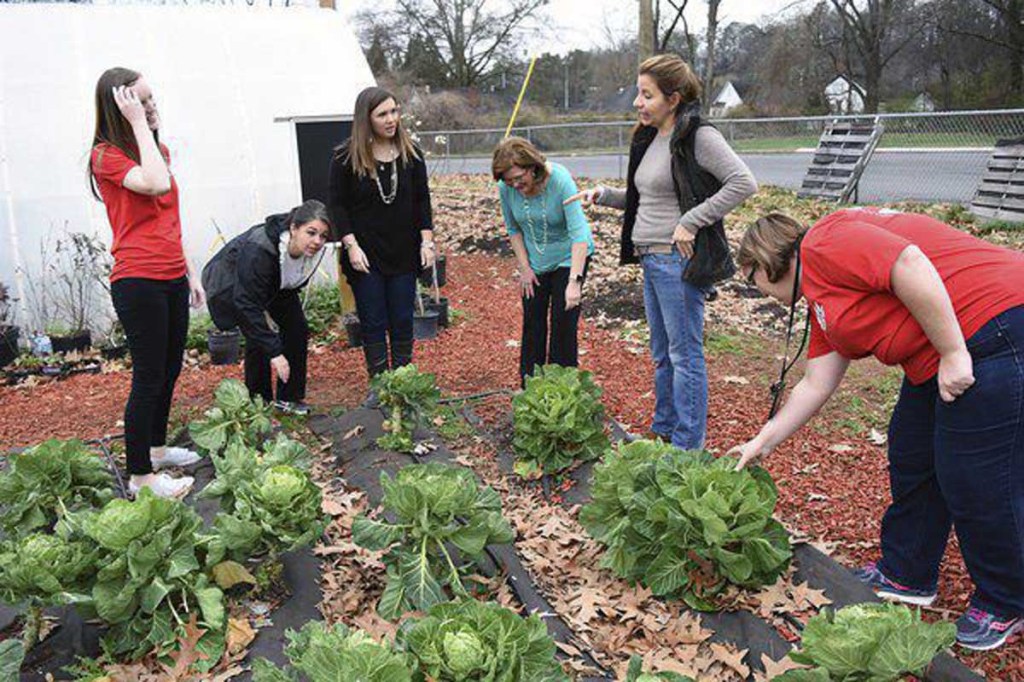Brookwood School’s garden: ‘Students are the experts’
Published 1:55 pm Friday, March 17, 2017

- From left, teachers Jessica Wimpey, Marie Dills, Stasha Wright and Anita Allred, instructional paraprofessional Carmen Flammini and teacher Casey Woods look over the garden at Brookwood School.
DALTON, Ga. — Jaidyn Squires, a third-grader at Brookwood School, said growing vegetables in the school’s garden is a lot of fun.
“It’s a great experience. When I was in kindergarten (at another school) we never had anything like this,” she said.
Third-graders in the classes of Anita Allred, Marie Dills, Jessica Wimpey, Casey Woods and Stasha Wright take care of the garden.
Dills said the organic garden evolved from a regular garden started five years ago. In the beginning, students only focused on cabbage. They’ve since grown broccoli, Brussels sprouts, lettuce, rutabaga, spinach and Swiss chard. Dills said teachers wanted it to become more of a learning opportunity for students.
At first, students used chemicals to grow cabbage until the environmental effects were realized.
“We began researching organic ways to grow healthy cabbages,” Dills said. “That’s when students started the organic garden and making compost to fertilize it.”
Teachers and students researched ways to grow cabbages. That led to students creating their compost to fertilize the garden.
Wimpey said focusing on more than cabbage helped show the organic effects on all vegetables.
“We realized if it’s going to be an organic garden we need to include more vegetables,” she said.
Students researched which crops are best for a specific season and each class grew a crop.
“We grow, measure and use data for the next year for more crops,” Wimpey said.
Dills said students work in the garden every chance they get but most winter months are spent doing research.
Davis Haynes, a student in Woods’ class, said he loves the garden.
“We grow and eat our own food, then make good recipes,” he said. “It’s really fun to take care of our vegetables.”
Allred said the garden is more than learning about food.
“The beauty of the garden project is that when there are problems, kids solve them,” she said. “It requires them to constantly think about what to approve and do differently.”
Allred calls the project “active-based learning.”
“It’s an environment that is integrated, we try to include all subjects,” she said.
Wright likes that the garden allows the students to take more ownership of their learning.
“While in the garden I can tell they’re engaged,” she said. “It allows them to think outside of the box of what school has been in the past.”
Students take what they’ve learned about organic gardening and share that with their families.
“Some children don’t know where their food comes from, here our kids see it first,” Woods said.
Wimpey said the third-graders involve the entire school by allowing other students to try the vegetables and teaching them how to reduce food waste.
Last year, students presented workshops on organic gardens. And plans are in the works for a community plot at Lakeshore Park this spring.
“Students are the experts,” Dills said. “They are teaching the community everything about organic gardening.”





